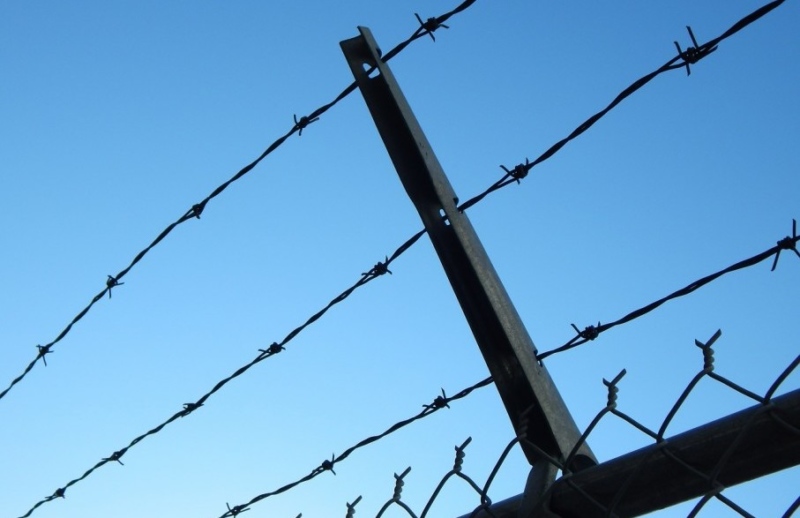Latin America Advisor
A Daily Publication of The Dialogue
What Is Behind the Problems in Latin America’s Prisons?
 Erika Wittlieb / CC0 1.0
Erika Wittlieb / CC0 1.0
Q: The United Nations' human rights agency called earlier this month for a probe into violence at the overcrowded Pedrinhas penitentiary in Brazil's Maranhão state after a violent video was posted showing inmates gloating over the decapitated bodies of three other inmates. Overcrowding and violence are common problems at prisons in Brazil and elsewhere in Latin America. What is behind the problems at Latin America's prisons, and what kinds of reforms are needed? What's been standing in their way?
A: Benjamin Lessing, assistant professor in the department of political science at the University of Chicago: "Prisons in Latin America do face common problems: when many law-abiding citizens face poverty, malnutrition, insecurity, inadequate public services and abusive police, improving prison conditions sounds more like a cruel joke than a realistic political priority. Brazil, however, has a problem all its own: prison gangs. The term is inadequate: the Primeiro Comando da Capital (PCC)--which paralyzed São Paulo in 2006 with synchronized riots in some 90 prisons and hundreds of attacks on police and public transportation, and now controls São Paulo's drug trade and operates in 16 other states--is hardly a 'gang.' Like Rio de Janeiro's Comando Vermelho (CV), which it emulated, the PCC has transformed prisons into operational headquarters for organizing criminal activity and flipped the logic of incarceration on its head. How? Through their control over inmate life, prison gangs can credibly promise those on the street protection or punishment upon eventual incarceration. As a former CV boss told me, 'Whatever you do on the outside, on the inside you'll have to answer for it.' Now, if outside actors obey because they anticipate future incarceration, then mass incarceration and indiscriminate gang sweeps will actually increase prison gangs' power on the streets, as will overcrowding and harsher sentences. Indeed, the PCC's quantum leap from upstart to criminal hegemon coincided with the quadrupling of São Paulo's prison population. Maranhão's current violence, within and beyond the prison walls, signals a struggle for dominance by its prison gangs--one of them a local affiliate of the PCC. As such, it is only the tip of the iceberg. The perverse dynamics of prison gangs will persist, even after one gang imposes its rule, violence dwindles (as it did in São Paulo) and the issue disappears from headlines."
A: Julita Lemgruber, director of the Center for Studies on Public Security and Citizenship at the Universidade Cândido Mendes and former director of the Rio de Janeiro state prison system: "Latin American prisons, as prisons everywhere, house the most underprivileged in society. Brazil is no different. Most of those in prison in Brazil are black and poor. And the absolute majority of these men and women lack proper legal defense. Overcrowding, violence and corruption are widespread. And this scenario is historical. The question to be answered is: why has the Workers' Party, in power for 10 years now, never considered the prison system a top priority? Because historically the left in Latin America believes that social justice will be achieved by investing in transforming socioeconomic conditions, and from this point of view the prison system will never be a priority. In a nutshell, after decades of military dictatorship in Latin America, democracy has not reached the criminal justice system."
A: Pien Metaal, project coordinator for Latin America drug law reform in the Drugs & Democracy Program at the Transnational Institute: "The outbursts of violence in Latin American prisons are a direct consequence of severe prison overcrowding and a dysfunctional judicial administration. It is not just the sheer amount of people crammed into dirty spaces, but also that the number of people awaiting their trial and sentencing mounts frustration up to an explosive level. Moreover, inmates are often treated with cruelty once entering prison. One important explanation for the increase of prisoners in Brazil can be found in the 2006 drug legislation that decriminalized the possession of drugs for personal use but stiffened penalties for trafficking, leaving the distinction between the two to the arresting officer and allowing doubtful criteria to play a role. Being male, young, black and poor increases the probability of being arrested and charged with trafficking considerably. In most other Latin American countries the situation is similar: a TNI/ WOLA study in 2010 found that in all the countries, the sharp increase in the prison population can be linked to harsh drug laws. The study also found that people convicted for drug offenses are highly likely to be consumers, small-scale dealers and couriers, not exactly Pablo Escobars. On the other hand, overburdened justice apparatuses have proved unable to deal with the influx caused by these laws, and as many as 40 percent of the people in prison are awaiting a sentence. In other countries, the percentage is even higher. In the case of Brazil, many of those, as shown by a recent study, are in detention for offenses that are not punishable with a prison sentence and should not be there in the first place, showing that preventive detention is being abused. Reforming drug legislation and providing all citizens access to proper legal defense would immediately alleviate this situation. The lack of political will combined with inadequate and inefficient resource allocation has been blocking these solutions."



















